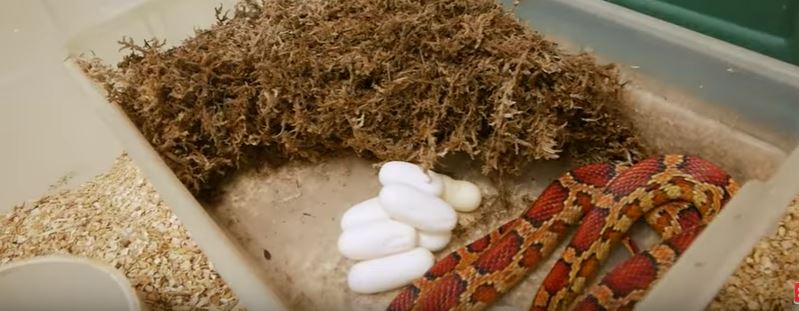Do snakes lay eggs or give live birth?

There is something that many people do not really know about snakes. We all assume that like all reptiles snakes only lay eggs. However, 70 percent of snakes actually lay eggs while others give birth to live young ones. The egg laying snakes, called oviparous, live in climates that are much warmer, and this helps in the incubation of the eggs. There are live birthing snakes called viviparous that live in the regions that are cooler. In such places, the ground is very cold and eggs cannot develop by themselves, so they snake has to give birth.
One of the things you should know is that most snakes will not stay and guard their eggs once they are laid. They are left to hatch on their own and then the little ones have to learn about the world all by themselves.
If you didn’t already know this fact, now you do. There is something about the reproduction of the snake that is even more interesting. This is the fact that some snakes actually develop the eggs from within their bodies and then give birth to young ones.
The reproduction
In snakes, reproduction comes in three categories, which are ovoviviparous, viviparous and oviparous. The way a snake reproduces depends on the species of the snake in question.
The viviparous snake’s doesn’t have eggs at all. These kinds of snakes often offer nourishment to the young ones via a yolk sac as well as a placenta. This is a very unusual thing where reptiles are concerned. The two examples of snakes that are capable of doing this are the green anacondas and the boa restrictors. There are no eggs involved in any stages of development of their young.
In the case of ovoviviparous snakes, the snake is actually something in between an egg layer and a live birth snake. The eggs develop within the body but once born the eggs remain inside. The hatchlings are then born live outside the egg.
Go back to the How to Get Rid of Snakes page or email us if you have any other questions about Do snakes lay eggs or give live birth?
About Us
We are the Pest Education Network, a non-profit organization that focuses on wildlife and pest removal education. Our approach utilizes Integrated Pest Management, a strategy advocating prevention and humane methods.


